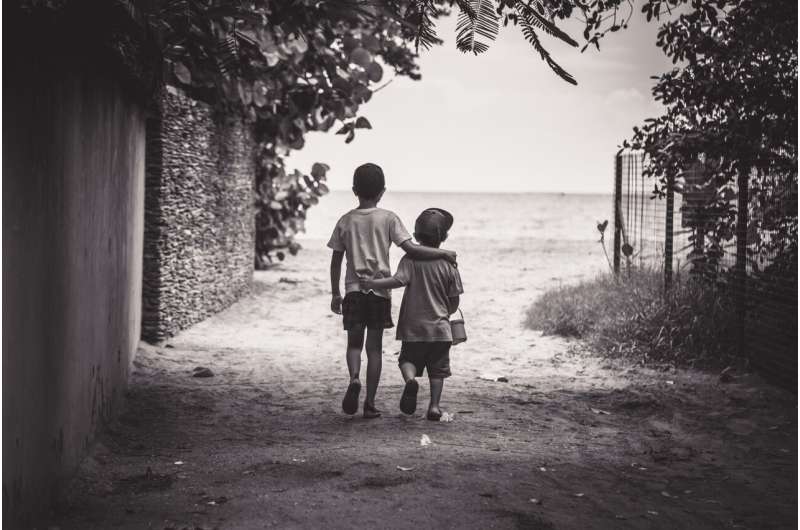Sibling interactions impact child well-being in Latinx children

Most children in the U.S. grow up with siblings, yet the role of sibling relations in child development and well-being is relatively understudied, especially among families of color. Researchers at Penn State, Arizona State University, and Harvard are working together to study these dynamics in Latinx children to better understand the role of siblings' warmth and negativity in children's everyday mood.
Anna Hochgraf, doctoral candidate in the department of human development and family studies (HDFS) at Penn State, said she wanted to document the day-to-day quality of sibling relationships and their implications for child well-being.
"How siblings generally get along, such as whether they are kind to each other and how much they fight and tease each other, has implications for child adjustment in the long-term," she said. "We focused on Latinx children in the U.S., not only because they are underrepresented in family and developmental research, but also because Latinx cultural values emphasize the importance of family relationships as sources of support and interdependence. In this study we looked to see if links between siblings' daily interactions and mood depended on their ties to Latinx culture."
The researchers studied 326 Latinx children from 163 families in the southwestern U.S. The team drew on the expertise of the Social Science Research Institute's Survey Research Center, whose staff conducted nightly phone interviews with the children from 2018 through 2019. In each of seven nightly phone calls, children reported their days' sibling experiences and their positive and negative moods.
Hochgraf and colleagues found that children reported more positive moods on days when they also experienced more sibling warmth than they usually did (that is, compared to their experiences on other call days) and less positive moods on days when they experienced more sibling negativity than usual.
"We also found that children with strong Latinx cultural ties reported less positive moods on days when they experienced more sibling negativity than usual," said Hochgraf. "In contrast, we were surprised to find that links between daily sibling warmth and mood did not differ based on the strength of children's ties to Latinx culture. Enculturation is often protective against adverse experiences; however, these findings suggest that there are certain circumstances in which these ties can increase children's vulnerability."
The researchers' findings also suggest that it may be possible to enhance child psychological well-being with interventions aimed at fostering positive sibling relationships. "Sibling interventions may be especially beneficial for children with strong ties to Latinx culture," Hochgraf said.
The work was published recently in the journal Child Development.
More information: Anna K. Hochgraf et al, Daily links between Latinx siblings' relationship qualities and mood, Child Development (2022). DOI: 10.1111/cdev.13777
Journal information: Child Development
Provided by Pennsylvania State University




















